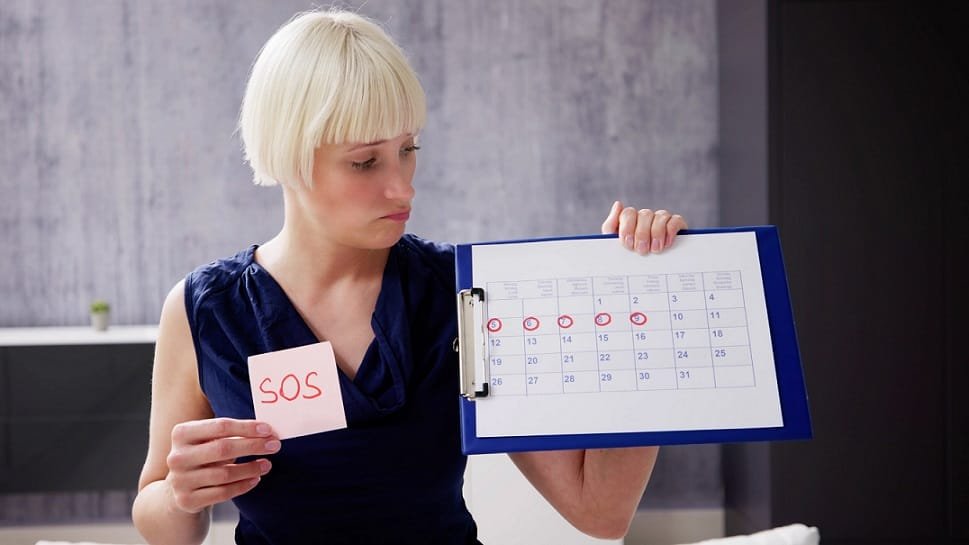Dealing with Irregular Periods
The age old worrisome condition that women often go through on monthly basis, ‘irregular periods’ has haunted us for centuries. Let’s dive into it to understand what causes them and how can we regularize them. Irregular periods, also known as oligomenorrhea, can be quite frustrating for some individuals. In this blog post, we’ll explore the various factors that can cause irregular periods and discuss some potential cures and lifestyle changes to help manage them. Remember, if you have concerns about your menstrual cycle, it’s always a good idea to consult with a healthcare professional.
Causes of Irregular Periods
Hormonal Imbalances
One of the most common causes of irregular periods is hormonal imbalances. Fluctuations in hormones, particularly estrogen and progesterone, can disrupt the regularity of your menstrual cycle. Conditions like polycystic ovary syndrome (PCOS) and thyroid disorders can contribute to hormonal imbalances.
Stress and Lifestyle Factors
Stress is a significant factor that can affect your menstrual cycle. High stress levels can lead to hormonal disturbances, which in turn impact your periods. Maintaining a healthy lifestyle, managing stress, and getting regular exercise can be helpful in this regard.
Weight and Diet
Both extreme weight fluctuations and poor diet choices can lead to irregular periods. Obesity and being underweight can affect your body’s ability to ovulate regularly. A balanced diet and maintaining a healthy weight can be key to regulating your cycle.
Medications and Birth Control
Hormonal Imbalance: Birth control methods such as the pill, patch, or hormonal IUD work by altering a woman’s natural hormone balance. They often contain synthetic versions of estrogen and/or progesterone. This can lead to an artificial hormonal state, which some women may find disruptive.
Side Effects:
Hormonal birth control can cause side effects such as mood swings, weight gain, breast tenderness, and nausea. These side effects are due to the hormonal changes and can negatively impact a woman’s well-being.
Menstrual Irregularities:
Some women may experience changes in their menstrual cycle, including irregular periods, spotting, or even the absence of periods while using hormonal birth control. This can be disconcerting for those who rely on their menstrual cycle as an indicator of health or fertility.
Decreased Libido:
A decrease in sexual desire is a potential side effect of hormonal contraceptives, which can negatively impact a woman’s overall well-being and relationships.
Nutritional Impact:
Hormonal contraceptives can affect nutrient absorption and metabolism. Some women may experience lower levels of certain vitamins and minerals, which can have broader health implications.
Mood Swings and Mental Health:
Changes in hormone levels can impact mood and mental health. Some women may experience depression, anxiety, or mood swings while using hormonal birth control.
Risk of Blood Clots:
Certain hormonal contraceptives, especially those containing estrogen, can increase the risk of blood clots. This can be a serious health concern.
It’s important to note that the effects of hormonal birth control can vary widely from person to person. While some women may experience these negative impacts, others may have a positive experience with hormonal contraceptives. The decision to use birth control should be made in consultation with a healthcare provider who can help assess individual needs and risks. If negative effects are experienced, alternative contraceptive methods or formulations may be considered. If you’re concerned about your birth control method, consult your healthcare provider for alternatives.
Cures and Management
Hormone Therapy
For those with severe hormonal imbalances, hormone therapy may be recommended by a healthcare professional. This can help regulate your menstrual cycle.
Lifestyle Changes
Making positive lifestyle changes can have a significant impact on your periods. Managing stress, getting regular exercise, and maintaining a balanced diet are all essential steps.
Herbal Remedies*
Some people find relief through herbal remedies like chasteberry, ginger, or turmeric. These natural remedies may help with hormone regulation, but always consult your doctor before trying them.
Regular Check-Ups*
Regular visits to your healthcare provider are crucial for monitoring and managing irregular periods. They can provide guidance on the best approach for your specific situation.
Conclusion: Dealing with Irregular Periods
Irregular periods can be a challenging issue to deal with, but understanding the causes and potential cures is the first step to managing them effectively. Remember that everyone’s body is unique, and what works for one person may not work for another. If you’re concerned about your menstrual cycle, it’s always a good idea to seek guidance from a healthcare professional. With the right approach and lifestyle changes, you can work towards a healthier, more regular menstrual cycle.




